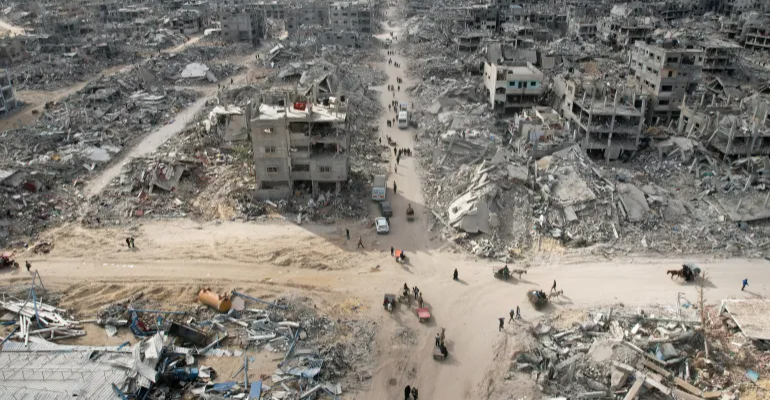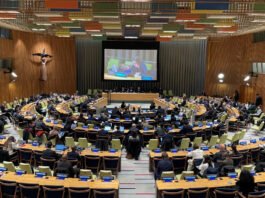Understanding the Humanitarian Situation in Gaza
The humanitarian situation in Gaza has reached critical levels, prompting widespread concern from international organizations and governments alike. The ongoing conflict, coupled with a blockade that restricts essential supplies, has led to a deterioration of living conditions for the civilian population. Reports indicate that the ongoing violence has exacerbated existing vulnerabilities, leading to a significant increase in malnutrition rates among both children and adults. This alarming trend underscores the severity of the crisis and the urgent need for targeted interventions to address these issues.
Access to clean water and adequate sanitation facilities remains severely limited in Gaza. Many households lack reliable access to safe drinking water, which has implications for health and well-being. As a result, waterborne diseases are increasingly prevalent, leading to further complications for an already weakened population. The lack of appropriate medical supplies and healthcare services has health professionals grappling to manage these illnesses, further straining an already overburdened healthcare system.
Another critical aspect of the humanitarian crisis in Gaza is the desperate shortage of food. As local agriculture struggles due to restricted access to land and resources, many families find themselves reliant on scarce food aid. However, the assistance provided is often insufficient to meet basic nutritional needs, contributing to rising malnutrition levels. According to various humanitarian reports, children are particularly vulnerable, facing stunted growth and developmental challenges due to inadequate dietary intake.
In light of these alarming conditions, it is evident that immediate relief efforts are essential. Humanitarian organizations are calling for increased international support to provide food, medical care, and essential supplies to the people of Gaza. Without concerted action, the ongoing humanitarian crisis is likely to worsen, resulting in further tragic consequences for the civilian population. Addressing these urgent needs is not only a moral imperative but also a necessary step towards fostering long-term stability in the region.
The Impact of Violence on Civilians
The ongoing violence in Gaza has resulted in a severe humanitarian crisis, affecting countless civilians in the region. Reports indicate that targeted attacks have become alarmingly common, frequently endangering non-combatants who are merely seeking basic necessities such as food and medical care. These incidents of violence not only claim lives but also create an atmosphere of fear and instability, further exacerbating the suffering of those caught in the conflict.
Many families find themselves trapped in their homes, unable to venture out without risking injury or death. This situation is particularly dire for vulnerable groups such as children, the elderly, and individuals with disabilities, who often lack the means to seek safety. The repeated bombings and skirmishes disrupt not only daily routines but also essential services, including healthcare, water supply, and food distribution, which are crucial for civilian survival.
<pmoreover, a="" affects="" all="" also="" and="" anxiety,="" are="" both="" but="" can="" civilian="" civilians="" commitment="" communities.="" conflict="" constant="" contribute="" cycle="" depression,="" disorder.="" health="" human="" humanitarian="" impacts="" imperative="" in="" including="" individuals="" international="" involved="" is="" issues,="" law="" lead="" legal="" living="" long-term="" mental="" moral="" not="" obligation="" of="" often="" on="" only="" overlooked="" p="" parties="" population="" post-traumatic="" protecting="" psychological="" requires="" rights.
It is essential for both state and non-state actors to prioritize the safety and well-being of civilians, implementing measures that can effectively mitigate violence and protect innocent lives. The continuity of these violent acts undermines not just the immediate safety of individuals but also the prospect of long-term peace and stability in the region, making it crucial for the international community to advocate for accountability and humanitarian intervention.
Challenges Facing Humanitarian Aid Delivery
The ongoing humanitarian crisis in Gaza presents numerous challenges that hinder the delivery of vital aid to the affected population. Organizations such as the United Nations and various non-governmental organizations (NGOs) are grappling with complex situations that significantly impede their ability to provide necessary assistance. One of the most pressing obstacles is the recent evacuation orders issued in areas like Deir al-Balah. These orders create a precarious environment where logistics are severely disrupted, making it increasingly difficult for humanitarian workers to reach those in need.
The evacuation commands not only increase the urgency for aid delivery but also lead to chaos among the civilian population. As people scramble to find safety, the paths to distribute food, medical supplies, and other essential resources intertwine with risks that can endanger both humanitarian workers and beneficiaries alike. Moreover, the infrastructure supporting humanitarian operations has suffered immensely due to ongoing conflict, further complicating relief efforts. Limited access to safe zones, deteriorating roads, and damaged facilities pose significant barriers to efficient aid distribution.
It is crucial for all parties involved, particularly Israel, to recognize their responsibilities in facilitating humanitarian access. International law mandates that all combatants must ensure the protection of civilians and facilitate the delivery of humanitarian aid. By easing restrictions on aid imports and allowing safe passage for aid convoys, the conditions for relief efforts could vastly improve. The collaboration between humanitarian organizations, local authorities, and international entities is essential to ensure that crucial help reaches the most vulnerable populations. Failure to address these challenges could result in dire consequences for the health and survival of countless individuals in Gaza.
A Call for Ceasefire and Immediate Action
The humanitarian crisis in Gaza has reached a critical juncture, prompting urgent calls for a ceasefire and immediate intervention. The UN Secretary-General has unequivocally emphasized the necessity of halting hostilities to protect civilians and aid workers who are increasingly at risk. This appeal transcends national and political boundaries, urging all parties involved to prioritize human life above all else. The continuing violence not only exacerbates the ongoing humanitarian needs but also undermines efforts to deliver essential assistance to those most affected by the conflict.
In light of this escalating crisis, it is imperative for the international community to come together. The calls for a ceasefire come alongside a broader request for the protection of vulnerable populations, especially women and children, who often bear the brunt of such conflicts. Humanitarian access must be guaranteed, ensuring that aid organizations can operate without obstruction and effectively respond to the urgent needs of those caught in the middle. The role of international actors is crucial, as they must advocate for pathways to peace and support initiatives that safeguard innocent lives.
Moreover, discussions regarding the conflict should pivot towards humanitarian considerations, emphasizing that every effort must be made to uphold human dignity during times of war. Civilians should never be collateral damage; thus, the responsibility lies not only with warring factions but also with global leaders to foster an environment where compassion and empathy guide their actions. A united front in calling for a ceasefire can catalyze a shift in dynamics, potentially leading to a sustainable peaceful resolution. The urgent situation calls for immediate action to alleviate the suffering in Gaza, reaffirming the pivotal role of collective responsibility in addressing humanitarian crises worldwide.




